Scores




What do you do if you have headache that lasts for hours or sudden shortness of breath, or abdominal pain that freaks you out?
Do you make an immediate appointment with your doctor, or run to your laptop or mobile phone to check your symptoms online?
The most people will probably reply with latter, which isn't surprising. Many of us turn to online or mobile symptom checkers first, trying to self-diagnose our symptoms and get advice on whether we should seek further medical attention, or just stay at home and rest until we feel better.
It's been estimated that approximately 8 out of 10 Americans search for medical information on the internet. This shouldn't necessarily be a bad thing, presuming that most of people do it occasionally for minor symptoms. In case of any acute major symptom, most of us would again reach for our phones, but to call emergency, not to use symptom checker.
There's an ongoing debate between clinicians and researchers on whether or not the online and mobile symptom checkers are reliable for self-diagnosing. While clinicians claim that symptom checkers are a good way to raise self-awareness and to cut down on unnecessary doctor visits, some researchers are not so thrilled about the efficiency of self-diagnosing tools.
Apparently, two thirds of patients who used the symptom checkers but didn't need medical attention sought it anyway.
Another problem that was outlined by researchers was accuracy of the symptom checkers. In the study, conducted and published in 2015, the researchers looked at 23 web-based symptom checkers from around the world to assess their accuracy.
They found that the correct diagnosis came up first only 34 percent of the time. Half the sites had the right answer in their top three results, and almost 60 percent had it in the top 20.
However, many people use and trust symptom checkers using them mostly on their mobile devices.
Symptomate app is one of the symptom checkers available for free for Android and iOS devices. It is developed by Infermedica, who describe their app as an innovative symptom checker designed by doctors that will help patients find out more about their symptoms, also claiming that the Symptomate app has already provided over half million of health checkups.
First thing I wanted to check is the information about the doctors who designed the app. Unfortunately, there was no single piece of information about who created app, or the references used for the app content.
The developers' website however, links to doctors' profiles, but they only show images and names, without much detail about their expertise or contribution to the app. That was the immediate drawback about this app.
Symptomate app works on basic principle, just like the most symptom checkers. Users are asked series of questions, allowing the app to make the diagnosis based on their answers.
The app first asks some general questions, about the patient's gender, age, height and weight, before choosing common symptoms, including headache, fever, shortness of breath, abdominal pain, and more.
The next step is adding additional symptoms through the auto-complete field, which works nice, then adding potential risk factors, such as high cholesterol, hypertension, diabetes or history of cancer, and finally your locations.
Based on your entries, the Symptomate app begins asking follow-up questions regarding your symptoms, with predefined answers that determine the course of the further questioning.
For the purpose of this review, I was using the app as a 57-year old female patient experiencing shortness of breath, weakness, with sore and cramped muscles, with a history of hypertension and high cholesterol.
I was expecting that the app would ask me if I have chest pain as soon as I finished adding general entries. But instead, it focused follow-up questions almost completely on the first symptom (shortness of breath), somehow disregarding hypertension and cholesterol issues. So, I've got results that I might have an asthma (58%) or COPD (28%), although my symptoms and history suggest that I might have cardiovascular problem rather than a problem with my respiratory system.
I was able to download these results as PDF report with additional details about these conditions.
In my second attempt, I've modified my answers slightly, so I've got the different set of follow-up questions with the results that suggested that it could be myocardial infarction, as a main diagnosis.
This was clearly better, but some patients are atypical, meaning they might not be experiencing chest pain or other symptoms suggesting they might have myocardial infarction or other cardiovascular problem, so their history should be taken into consideration.
Symptomate app missed that, although every symptom checker should start queries from serious to mild conditions, to avoid misdiagnosing and errors.
The Symptomate creators claim their symptom checker uses advanced AI algorithm that uses exhaustive medical database of over 1000 symptoms and over 500 potential conditions.
But, honestly I didn't get that impression. The questions (both initial and follow-up) were too general and unspecified, often leading to too broad diagnosis. Also, there's no reference about the algorithm or sources used for the app content.
I think Symptomate app has a good idea and good intentions, but also a lot of room for improvement. If some things are reworked it could be very useful tool. But currently it's nowhere near top symptom checker apps.
Benefit: The app is designed for patients as a self-diagnosing tool.
Verdict:
For- Simply designed with easy-to-use interface
- Results can be exported as a PDF report
- Some questions and diagnoses are too broad and unspecified
- It's not clear how the algorithm works
- The app doesn't provide single reference about the resources used


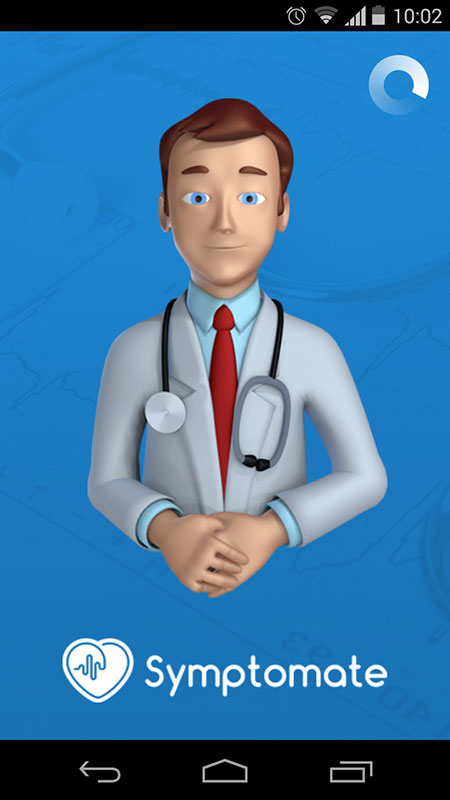
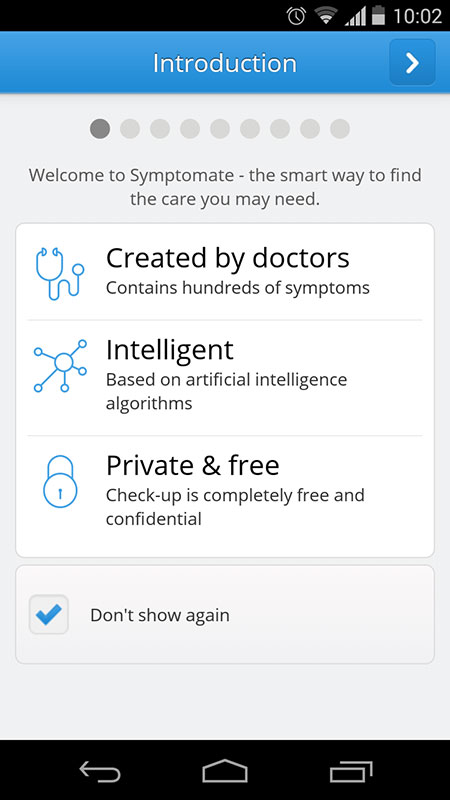
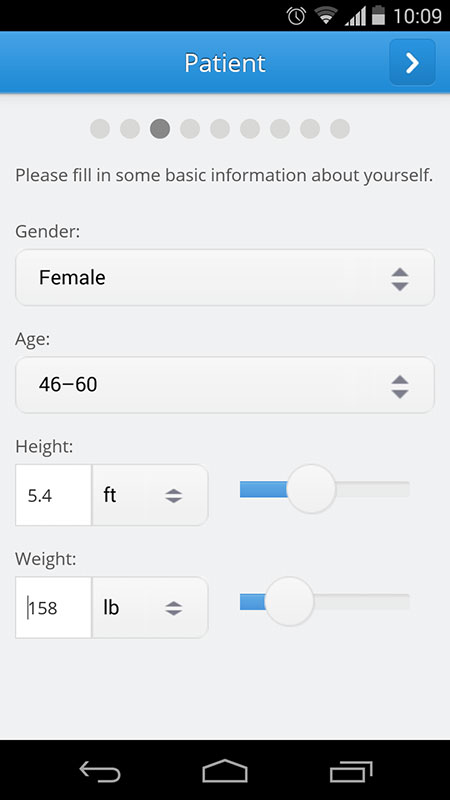
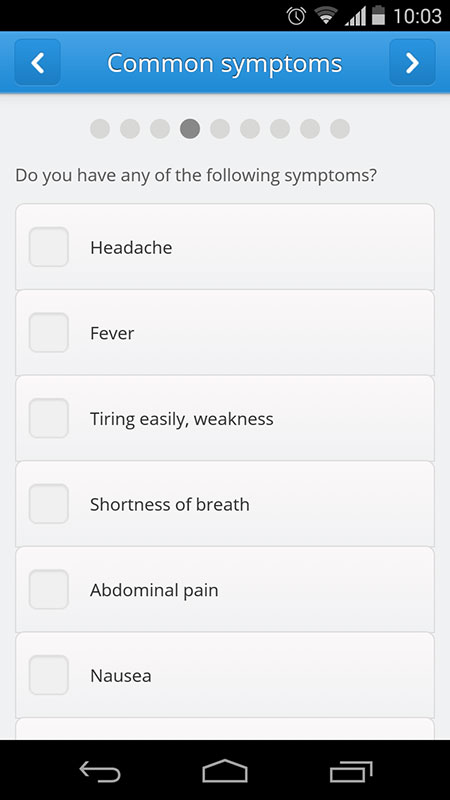
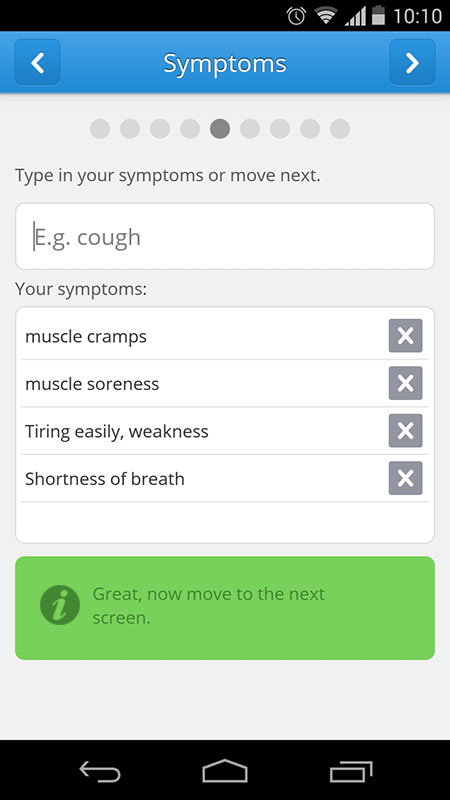
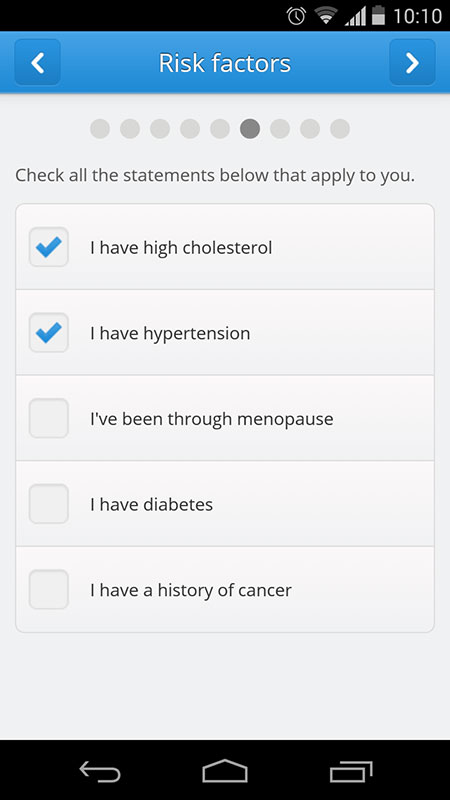
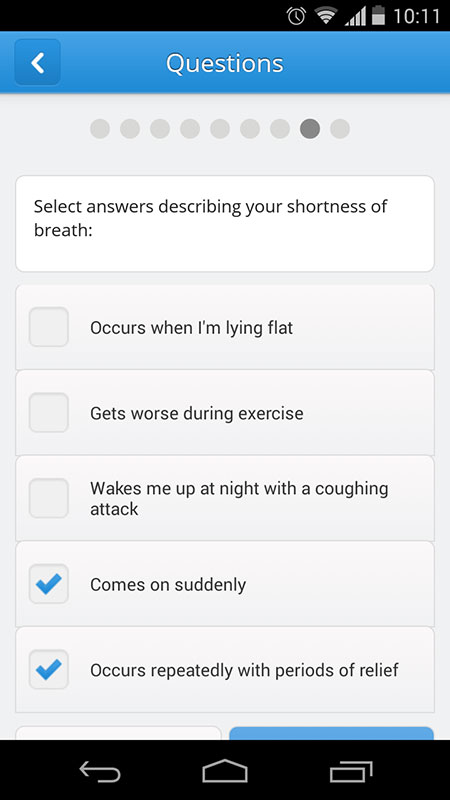
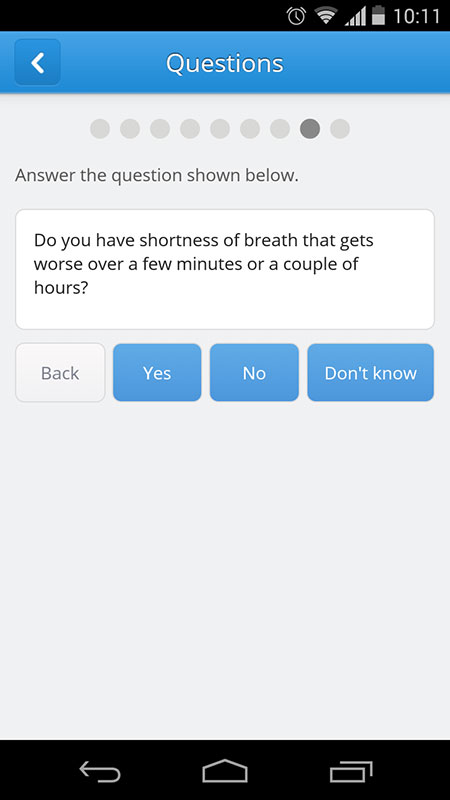
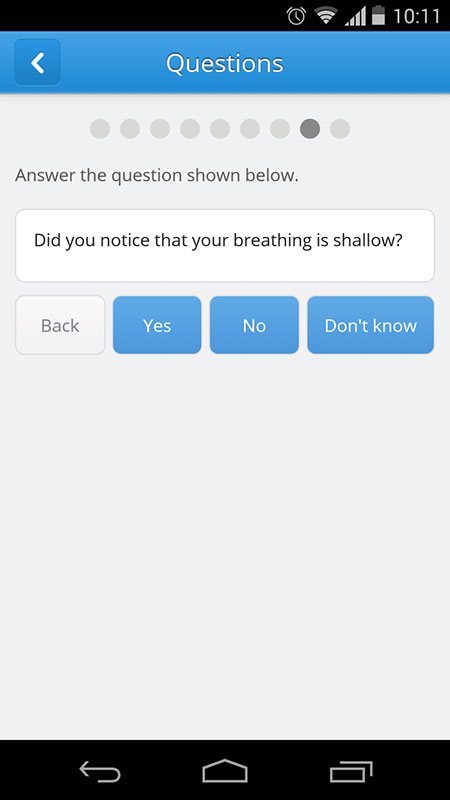
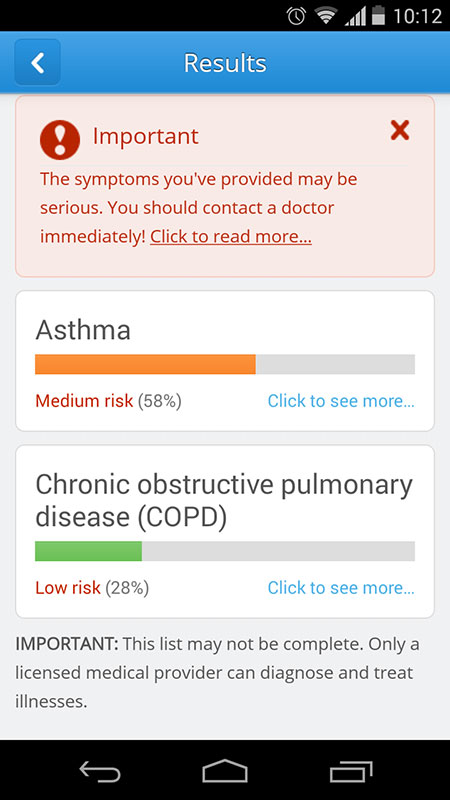
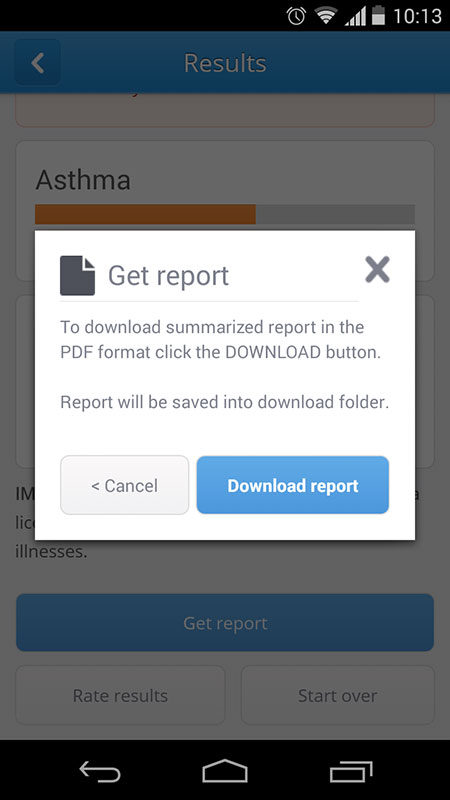
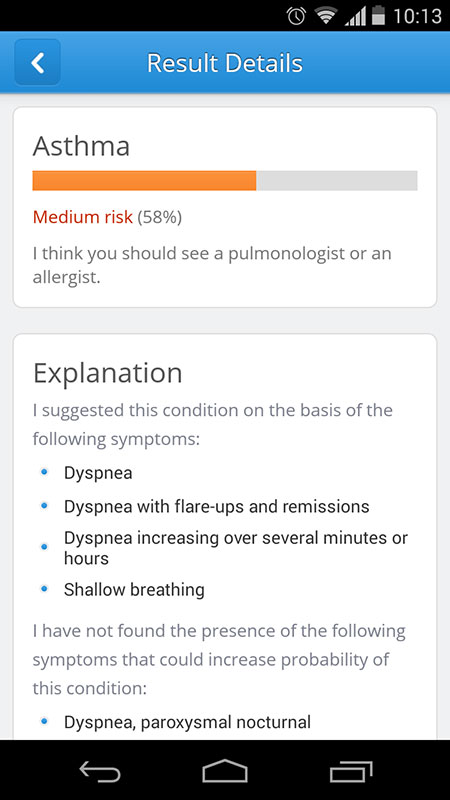
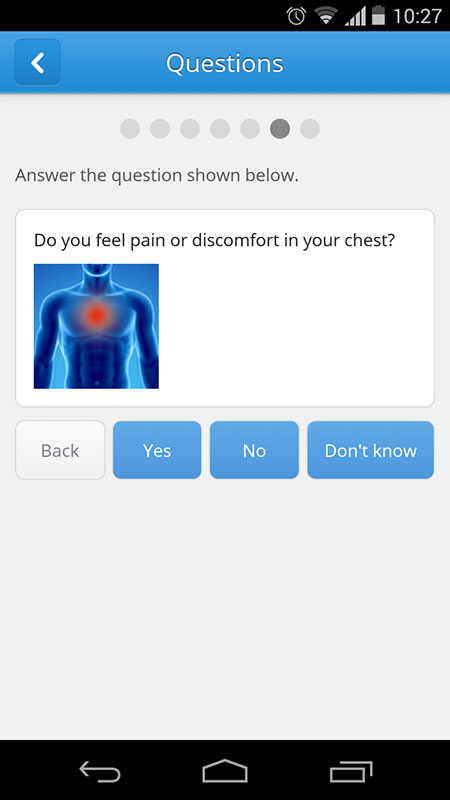
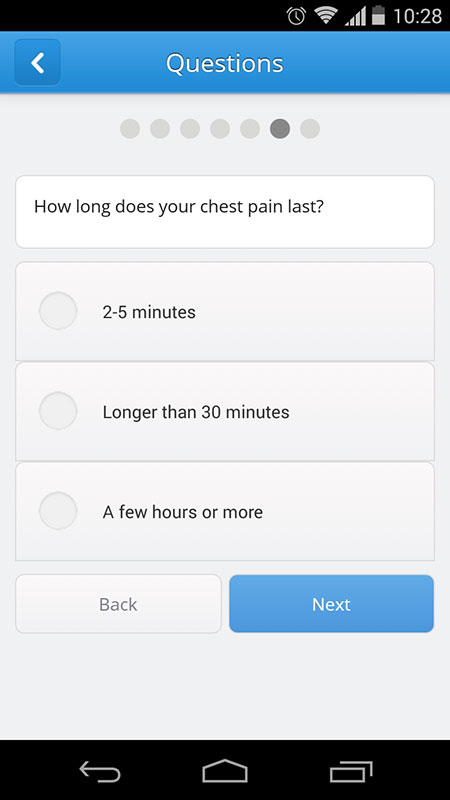
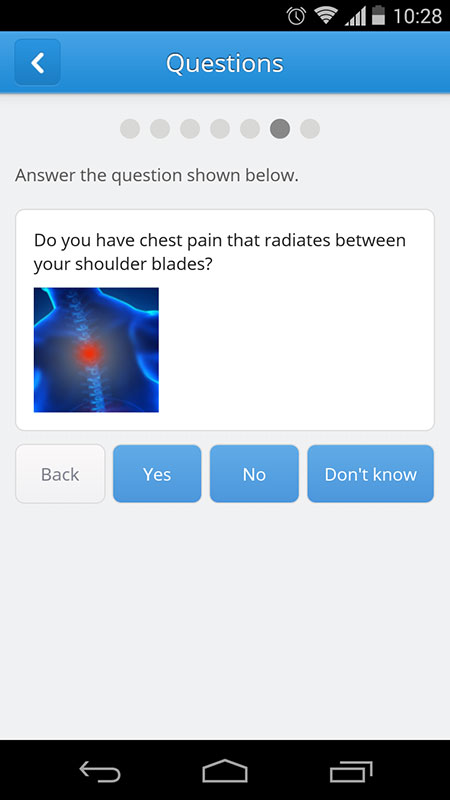
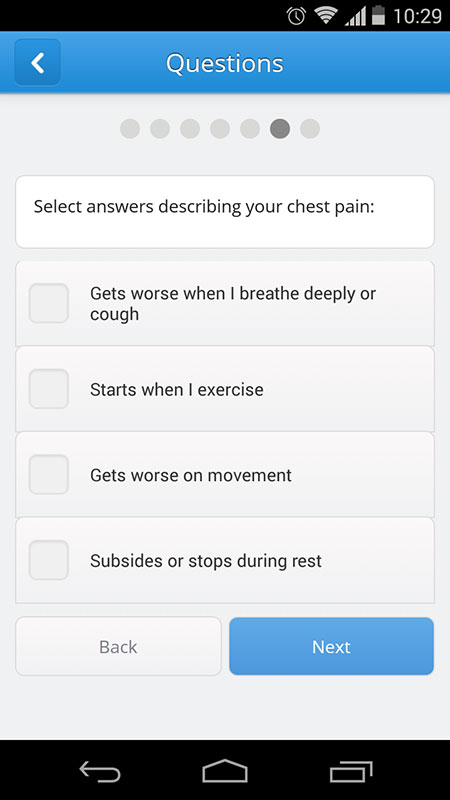
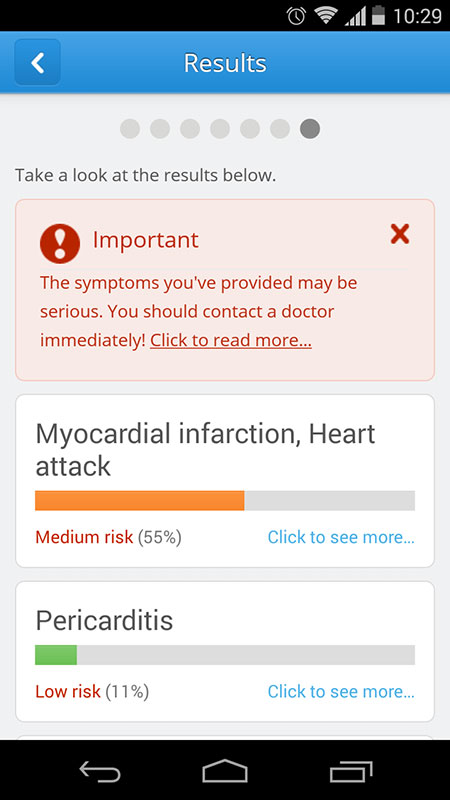
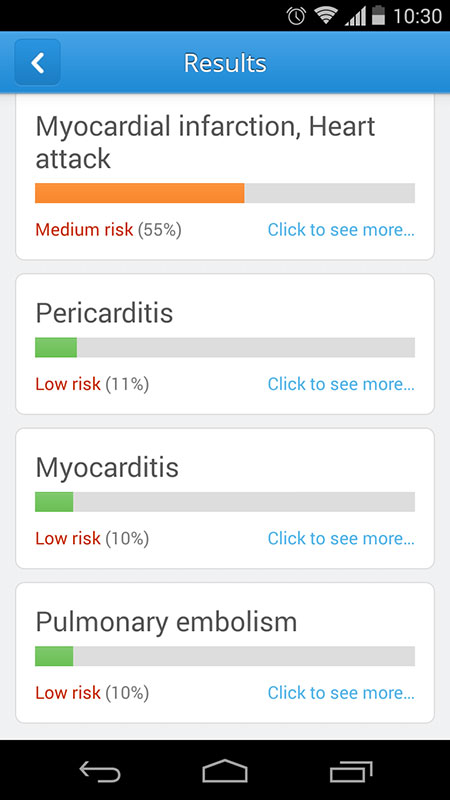






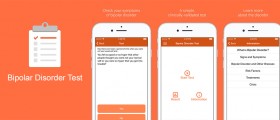























Your thoughts on this
Loading...